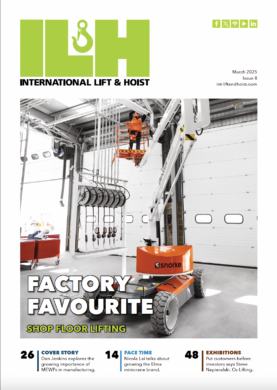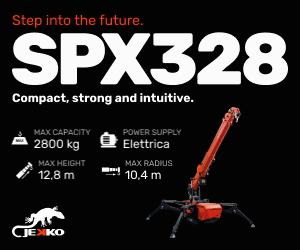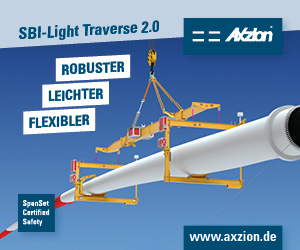)
Lifting is a people business
Ross Moloney, CEO of Lifting Equipment Engineers Association (LEEA), is encouraged by how our industry is coming together to address the skills shortage challenge.
A list of ingredients is stirring up a skills shortage stew that is exerting a considerable toll on organisations around the world. In the UK, for example, the Recruitment & Employment Confederation estimates that if labour shortages are not addressed, the UK economy will be £39 billion worse off each year from 2024. The Open University’s 2022 Business Barometer estimated that 78% of UK organisations suffered a decline in output, profitability or growth as a consequence of a lack of available skills.
While commentators have noted that new immigration rules post-Brexit may have exacerbated the situation in the UK, it is not unique in experiencing shortages of workers and while causes may differ, labour shortages are a global issue. Some 75% of companies surveyed across eight countries and regions reported talent shortages, according to recent research by global staffing company ManpowerGroup. In many countries it is not uncommon to find a skills mismatch, where people study degrees at university for whichthere is little demand and opportunity, while economies struggle to fill essential jobs.
The economic reality, and another globally shared issue, is that a lack of personnel combined with persistent inflation exerts pressure on upward wage growth.
This is the current background for the latest address on the need for new recruits in the lifting sector. As I continue to speak with managing directors among our membership, they remain united in their concern regarding where the next generation of lifting engineers is going to come from. It would be all too easy to simply sound the skills shortage alert and then do little about it. But we are engineers, and this means we solve problems.
In some areas, technology and automation can help to optimise labour, but lifting is fundamentally a people business. Clearly our sector is competing with others to attract a smaller pool of available labour. We need to be better at recognising that we are competing for the next generation, and in developing pathways allowing people to join us.
Those sectors that try the hardest will do the best, and this is why I am encouraged by how our industry is coming together to answer this call and I’m proud that LEEA is taking the lead in doing everything it can to address skills shortages in lifting: from Think Lifting and schools engagement at LiftEx, to the apprenticeship and training programmes.
A further source of new recruits derives from involving partners and stakeholders in the military community, such as through LEEA’s recent Military webinar and its Military Transition Scheme. We know the services have high calibre people with important employability skills, and they have the technical expertise required by our industry. Those skills will need to be transferred into industry recognised qualifications – a bridge that LEEA is looking to help them cross by offering the next step in their work life that military leavers are seeking. Our message to them is to come and look at the LEEA offer. Please bring your expertise and skills to the civilian workforce, please don’t retrain to be something else and turn your back on your experience. There is a pathway, a real solution, and an opportunity to work for LEEA members who represent the best employers in the Lifting Industry. The work that LEEA does with military and veterans is a global effort, so if you are leaving the military anywhere around the world, don’t retrain to be a plumber, if you bring your experience, we will give you training.
Rather than have people accidentally fall into our industry, we want them to choose us by recognising that there are financial rewards, there is often travel involved, and the industry is full of interesting people and fascinating projects in anything from the entertainment sector to major construction projects. We can show them what a great industry this is – one that is full of opportunity.
Recruitment is very much in mind when lifting has its day in the spotlight during Global Lifting Awareness Day, with #GLAD2023 taking place on 13 July. Created to highlight the industry and spread messages around the globe about excellence, safe practice and its importance to end users, it is clearly also an ideal shop window giving new recruits the best possible impression of our industry.











